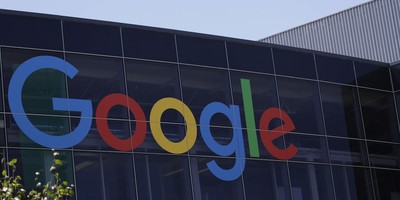The whole food movement is very interesting to me. Parts of me really empathize with it. I invested in Tallgrassbeef. Farmer’s Markets anywhere are a private love of mine. It’s fun to walk through and get fresh fruits and vegetables and take them home and eat them. Where I live, there are artisan cheese mongers and artisan butchers I can patronize and get some really cool stuff to eat. But, it’s not cheap.
There is a movement to fight big food. Chris Cook recently penned an article to energize people to go after the big corporations that exist because they bring the food supply efficiently to consumers.
Because I look at investments in this space, I have educated myself about it. In the past year, I lost thirty pounds. When you are on a diet to lose weight you begin to view food differently. You pay pretty close attention to what goes in your mouth. I view the food chain from farm to fork dispassionately when it comes to investing and analyzing the chains of distribution, and I am passionate about what I put on my fork!
The first point in this article is that we need to radically change what we eat. I don’t disagree with that premise. Anyone that follows the FDA guidelines for eating will find that they become fat. Unfortunately, their misinformation has contributed to the obesity problem in the US.
The actual on the ground science, along with the experience of myself and many friends that have dropped 10% of their body mass or more show that if you deviate greatly from FDA guidelines you are better off. But, that’s a continual theme on this blog. Big government is often wrong when it comes to financial regulation, health care regulation energy regulation and general regulation. What makes you think they would get it right on food?
Recommended
Here is the articles call to action:
“It is time — now, not next year — to de-occupy Walmart. And Archer Daniels Midland. And Tyson Foods. And Monsanto. And Cargill. And Kraft Foods. And the other large corporations that decide what ends up on our plates. Take all our money out, public and personal, from our shopping dollars to school district lunch contracts to the corporate subsidies that uphold these firms’ grip on our food supply, and invest it in a new system that’s economically diverse and ecologically sustainable.”
My question is this, Who is the largest retailer of organic foods in the world? Walmart.
Who is the largest organic seed producer/wholesaler in the world? Monsanto.
Where else does their argument break down? It breaks down because no one is forcing anyone to eat anything in particular. Individuals choose to go to McDonald’s and eat. By the way, McDonald’s has altered its menu greatly. It listened to its customers and now offers plenty of variety. When I am on the road and need a breakfast, I can go to McDonald’s and get an Egg McMuffin and coffee for less than five bucks. That’s a pretty good deal.
If you don’t want to eat out at lunch, you have the option of bringing your own. Hey, if you bring your own you can control what’s in it and you will save yourself money. It’s also more environmentally friendly and probably healthier for you. The point is, we don’t need a nationwide movement boycotting corporations to get people to bring their lunch to work. Of course, be careful, the lunch police might take your lunch away and make you eat food from corporations.
My own experience is that I have to go to the grocery store and shop. I wind up making my breakfast, lunch and dinner every day at home. Sometimes, I run short of time, so instead of making a huge meal I figure out a way to have a healthy meal quickly. There are several websites on the web devoted to designing menus like that. In our family, we also will make something that we can eat for days after as leftovers. That stretches out the dollars too. Beef prices have skyrocketed over the past months yet I was able to buy some pot roasts for less than $10. They would easily feed a family of four. The whole dinner meal I would make with that would cost less than going to an average restaurant (non-fast food). The important point is that I make the decisions about what’s going into my body, not the government. The corporation’s role in the process is delivering me a lot of food choices at a low price. I choose what and where I want to buy them.
There are a couple of other facts these guys misinterpret. First of all, the grain markets are extremely fragmented. They cannot be controlled by four corporations. The grain market($ZC_F, $ZW_F, $ZS_F) is also extremely transparent. You can see the price of every major grain every day at CME ($CME). The beef market($LE_F) also is fragmented. It’s price is posted every day too. I might agree with the author that the hog market($HE_F) and the dairy markets are less fragmented and more dominated by industry players. But each of those markets is highly dependent on supply and demand from the broader world market so it makes it very hard for them to control the price. The dairy market is heavily controlled by the FDA-not corporations.
They also assume organic food is healthier for you. That’s not true. It may taste better. But that has more to do with when it was picked and when you bought it than if it’s organic or not.
Certainly, the amount of family farmers in the US has declined significantly since 1900. Automation ($JD) has made farming a lot more efficient. Less farmers are needed to produce the same amount of produce. Advances in genetics have caused crops to yield much more per acre. Lately, computerization has driven even more efficiency in the farm market. There are computer programs that detect the best logistics for planting a field, and for fertilizing and weeding it. We use less chemicals in farming now than we did before. These kinds of efficiencies have driven people away from farming because there is less profit in it. Kids have moved from the farm to the city. How many kids grow up today and desire to be a farmer? If you weren’t raised on a farm, odds are pretty good it’s not even on the radar screen of possible occupations.
Government regulation has screwed up the entire food consumption process. The food pyramid isn’t about what’s healthy for you, it’s about which segment of the industry lobbied the best. If government really wanted people to eat right, it would encourage us all to eat more protein, fruits and vegetables, and lay off root vegetables, and grains. It would encourage natural fats like leaf lard, olive oil, coconut oil and duck fat. It would make sure things like partially hydrogenated fat, and sugar substitutes like corn syrup out of the food chain. But government doesn’t really care about outcomes. It only cares about increasing its power.
We don’t need a huge corporate boycott to change the food industry. If you want things to change, alter what you buy with your wallet. Adjust your own consuming behavior. If enough people make the switch, the corporations that participate in the market will have to change-or they will open themselves up to a competitor that will fill the niche. McDonald’s recently said they won’t buy pork from producers that use gestation stalls. Power of the consumer.
What we do need is government to deregulate the food supply. Just like the Occupy Wall Street folks, the anger that is being directed at food companies should be redirected to government agencies like the FDA. Offer people choice. Deregulation will drop the price of food and people will alter their behavior and choices they currently make. As with most problems in the US, they aren’t cured by Washington DC. Government solutions create more problems and exacerbate the situation.
Until then. Make your own choices. Empower yourself. You have the power and control over what you put in your mouth. You have the power and control because only you buy the food and prepare it. If we continue down the rely on government to make our choices for us we will wind up eating Soylent Green. Corporations would make it anyway. I put my money where my blog is. You can too!

























Join the conversation as a VIP Member